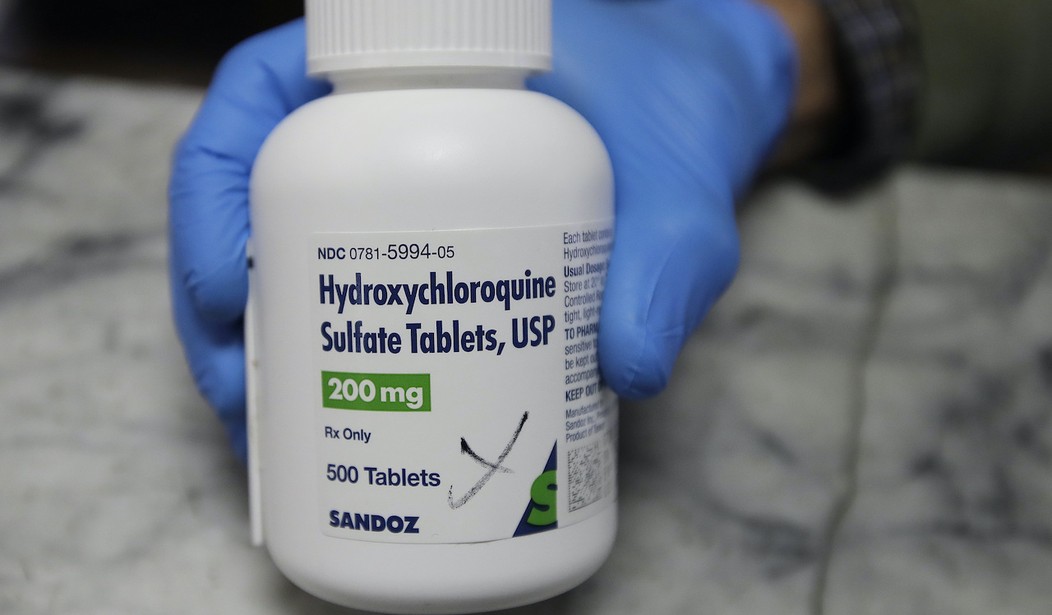Weeks ago a study claiming that the antimalarial drug hydroxychloroquine was linked to higher rates of mortality with coronavirus patients was based on possibly bogus data from a small America-based company called Surgisphere, reports The Guardian.
The World Health Organization and many national governments changed their policies and treatment guidelines based on this faulty study. Many in the media freaked out when Trump revealed he was taking the drug to protect him from the coronavirus.
A Guardian investigation can reveal the US-based company Surgisphere, whose handful of employees appear to include a science fiction writer and an adult-content model, has provided data for multiple studies on Covid-19 co-authored by its chief executive, but has so far failed to adequately explain its data or methodology.
Data it claims to have legitimately obtained from more than a thousand hospitals worldwide formed the basis of scientific articles that have led to changes in Covid-19 treatment policies in Latin American countries. It was also behind a decision by the WHO and research institutes around the world to halt trials of the controversial drug hydroxychloroquine.
Two of the world’s leading medical journals – the Lancet and the New England Journal of Medicine – published studies based on Surgisphere data. The studies were co-authored by the firm’s chief executive, Sapan Desai.
Both the Lancet and The New England Journal of Medicine have since released an “expression of concern” (EOC) about the published study.
Here’s the EOC from the Lancet:
Important scientific questions have been raised about data reported in the paper by Mandeep Mehra et al—Hydroxychloroquine or chloroquine with or without a macrolide for treatment of COVID-19: a multinational registry analysis—published in The Lancet on May 22, 2020. Although an independent audit of the provenance and validity of the data has been commissioned by the authors not affiliated with Surgisphere and is ongoing, with results expected very shortly, we are issuing an Expression of Concern to alert readers to the fact that serious scientific questions have been brought to our attention. We will update this notice as soon as we have further information.
Here’s the EOC from the New England Journal of Medicine:
On May 1, 2020, we published “Cardiovascular Disease, Drug Therapy, and Mortality in Covid-19,”1 a study of the effect of preexisting treatment with angiotensin-converting enzyme (ACE) inhibitors and angiotensin-receptor blockers (ARBs) on Covid-19. This retrospective study used data drawn from an international database that included electronic health records from 169 hospitals on three continents. Recently, substantive concerns have been raised about the quality of the information in that database. We have asked the authors to provide evidence that the data are reliable. In the interim and for the benefit of our readers, we are publishing this Expression of Concern about the reliability of their conclusions.
The notion that hydroxychloroquine was a deadly drug was absurd on its face considering it has been approved by the FDA for over sixty years in treating multiple diseases, meaning its side effects and risk factors have been well documented, and would likely have been accounted for in any legitimate study.
RELATED: Kayleigh McEnany Destroys Chris Cuomo For Blatant Hydroxychloroquine Hypocrisy
According to the Guardian’s investigation, Surgisphere’s employees “have little or no data or scientific background,” and one employee, whose title appeared to be “science editor” is actually “a science fiction author and fantasy artist.” The company’s social media presence also raised red flags, with fewer than 100 followers and just six employees shown on their page. Their Twitter account was also suspiciously inactive and lacking in followers for a company that claims to “run one of the largest and fastest hospital databases in the world.” The company’s chief executive, Sapan Desai, has also been named in three medical malpractice lawsuits, unrelated to its database.
The war on chloroquine and hydroxychloroquine began almost immediately after Trump touted it as a potential gamechanger in the fight against the disease. Trump was accused of “practicing medicine without a license” simply for pointing out that the drug showed promise in some small studies. The New York Times even alleged that Trump’s motivation for touting the drug was self-serving because he holds “a small personal financial interest” in Sanofi, even though the drug is out of patent, and he only owned $29 – $435 in stock as part of a mutual fund.
Success stories from coronavirus patients who recovered after being treated with the drug have also been widely ignored. In April, a Democrat lawmaker in Michigan credited the drug and President Trump with saving her life. State Rep. Karen Whitsett, a Detroit Democrat, tested positive for the coronavirus in March, and had been aware of “the wonders” of hydroxychloroquine after a previous Lyme disease affliction, but would never have thought to ask for a prescription for it to treat the coronavirus had Trump not been touting it as a possible treatment for COVID-19. Whitsett took the drug in combination with antibiotics and made a full recovery.
“It has a lot to do with the president … bringing it up,” Whitsett said. “He is the only person who has the power to make it a priority.”
Other coronavirus patients have reported dramatic recoveries after taking the drug.
Despite the slew of positive results of the drug, a Democratic state lawmaker in Ohio moaned that Trump should be tried for “crimes against humanity” for touting the drug’s potential.
Reports instead repeatedly cited the aforementioned study as proof the drug was deadly. Following Trump’s revelation that he was taking the drug, Fox News Channel’s Neil Cavuto had an on-air rant claiming “If you are in a risky population here, and you are taking this as a preventative treatment…it will KILL you. I cannot stress enough. This will KILL you.”
Trump is presumably still taking hydroxychloroquine, and is still alive.
How many people could have been treated with the drug had it not been for this possibly faulty data raising unjust alarm bells about it? The next question to ask is why was this data used in the first place, and what motivated Surgisphere to do what they did?
What’s Up With the Media’s Irrational Hydroxychloroquine Derangement Syndrome?










Join the conversation as a VIP Member